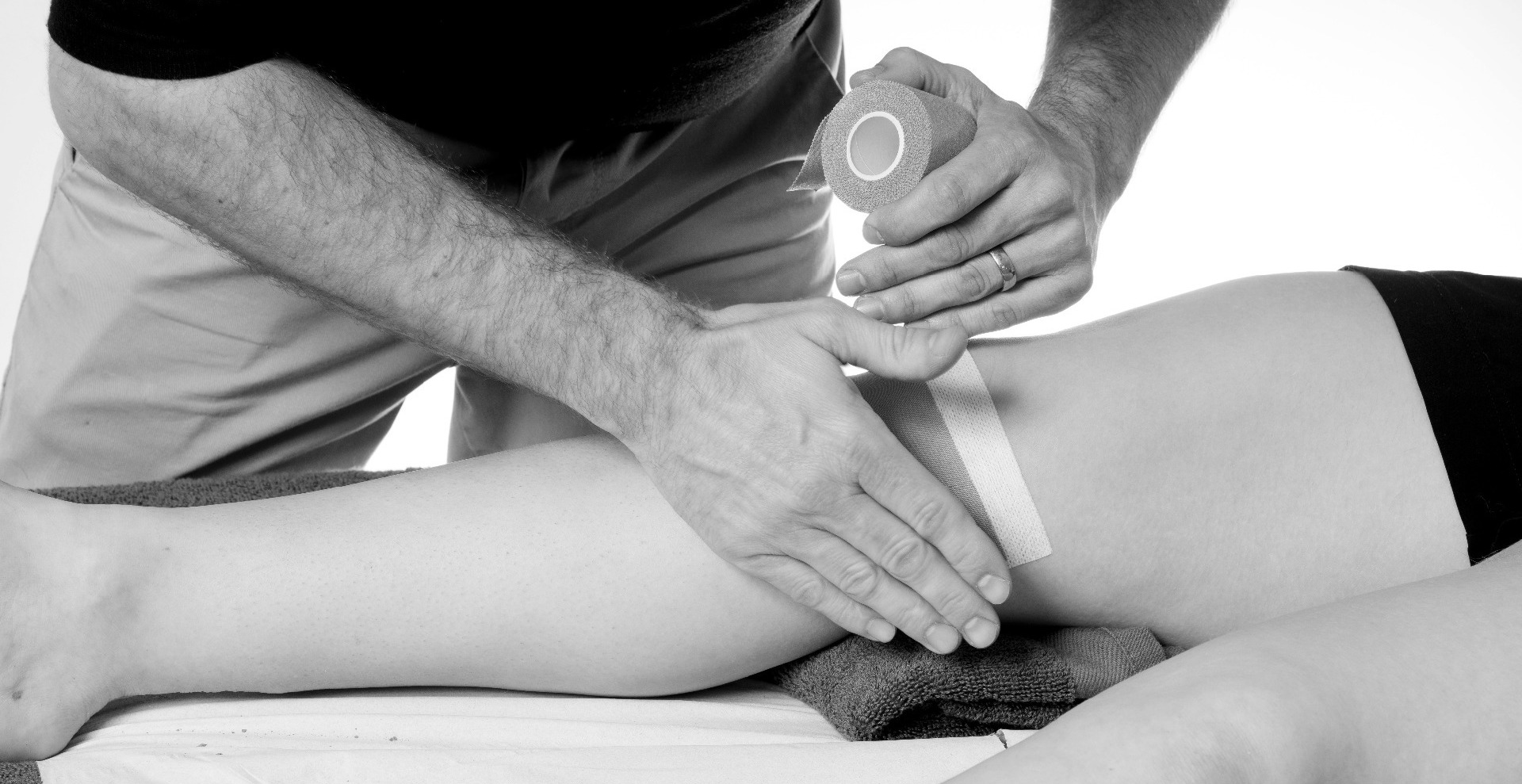Taping
Taping techniques can be a helpful adjunct to your rehabilitation programme and is something we advocate at PHYSIO 206
Taping is the application of either a rigid/elastic tape or a more flexible therapeutic tape to assist in the rehabilitation of many joint, muscle, ligament and tendon problems.
Some of the proposed benefits of taping are:
Protection of injured soft tissues (ligaments, tendons, fascia and muscles)
Injury prevention
To encourage normal movement
A quicker return to sport or work
Pain reduction
Improving joint stability
Reducing the risk of re-injury
Reducing swelling
Taping can be utilised in the therapeutic management of many common conditions including the following:
Shoulder pain
Ankle sprains
Knee pain
Heel pain (plantar fasciitis / plantar fasciopathy)
Tendon pain (e.g. tennis / golfers elbow)
Muscle strains
Postural driven neck / arm pain
At PHYSIO 206 we offer 2 types of taping techniques:
1. Rigid/eslatic taping
A more traditional taping technique, based on the "McConnell" and "Mulligan" taping principles. With this technique a base layer of hypo-allergenic "hyperfix" is applied to the skin and on top of this a more rigid elastoplast form of tape "leuoktape" is applied under some tension. This type of technique is used most commonly in clinic for neck pain, shoulder pain, knee pain, heel pain and for the acute management of ankle sprains.
2. Therapeutic/kinesio taping
A more recent concept (though it was developed in the late 1970's by a chiropractor in Japan) that has gained popularity particularly in the sporting arena. This involves the application of a more flexible tape. The type of tension and the direction in which you apply this tape has been suggested to provide different benefits for the musculoskeletal system, though research is still ongoing to substantiate some of these claims. One very noticeable benefit of this type of taping technqiue that has been seen in clinic is its impact on reducing swelling and bruising in acute soft tissue injuries, particularly to muscles (e.g calf strains). Very impressive indeed!
Taping is not harmful. However, there is the potential for a skin reaction to occur. If you have any types of skin condition, poor quality of skin or a previous history of allergies to any form of medical tape or plaster then taping would not be recommended. Your physiotherapist will advise you on how long you should wear the tape for, how to remove it and the early signs to look out for that may be suggestive of a skin reaction (e.g feeling itchy, noticing redness)
For more information and to book a consultation please email bookings@physio206.co.uk or call 07512 203536




